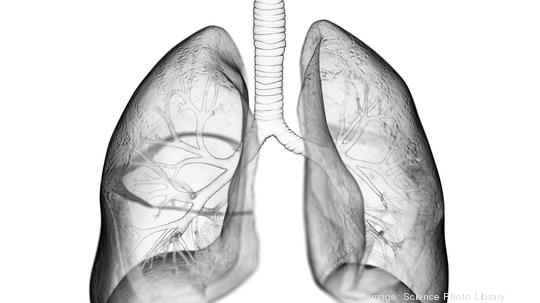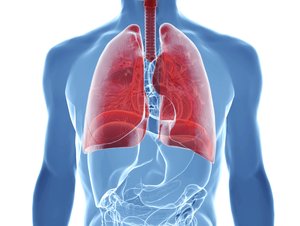
A small biopharmaceutical company in Chapel Hill plans to move one of its clinical programs to a phase 3 trial following positive study results.
Renovion is advancing a nebulized therapy, called Arina-1, in multiple clinical programs focused on pulmonary diseases. The company, which originally licensed its technology from UNC-Chapel Hill, last year raised $15 million to support these efforts.
One of the clinical programs targets non-cystic fibrosis bronchiectasis, a chronic lung condition, with no approved treatments that directly targets mucus symptoms. Renovion hopes to develop the first such approved treatment. The company on Tuesday announced positive top-line results from a phase 2 study involving 40 participants.
The study, which involved the therapy being administered to patients twice daily for 28 days, met its primary and secondary endpoints. The results demonstrate that the therapy is safe and well-tolerated in individuals with non-cystic fibrosis bronchiectasis and mucus symptoms at day 28. The results also demonstrate that the therapy improves quality of life measurements for individuals with non-cystic fibrosis bronchiectasis.
"These results show that Arina-1 can have a profound benefit for patients," CEO Dan Copeland said in a statement. "There are currently no approved therapies for bronchiectasis, and to see such a clear impact on symptom reduction with our benign safety profile positions Arina-1 as an excellent first line therapy for patients."
Copeland on Wednesday declined to comment further on the study results.
Chief Scientific Officer Carolyn Durham said in a statement that Renovion plans to further analyze the study data and discuss next steps with regulators.
The company already has one phase 3 study underway, a program focused on preventing a rare condition called bronchiolitis obliterans syndrome in adults who have received a bilateral lung transplant. The company began enrolling patients in April 2023 and the recruiting is ongoing, according to a federal clinical trials database.
The company last year raised $15 million from 24 investors to support its clinical programs. This followed a $8 million raise in 2020.
In a conversation with Triangle Business Journal last year, Copeland said Renovion would either look to raise additional funds or find a strategic partner to advance the non-cystic fibrosis bronchiectasis program through a phase 3 study and into commercialization.

